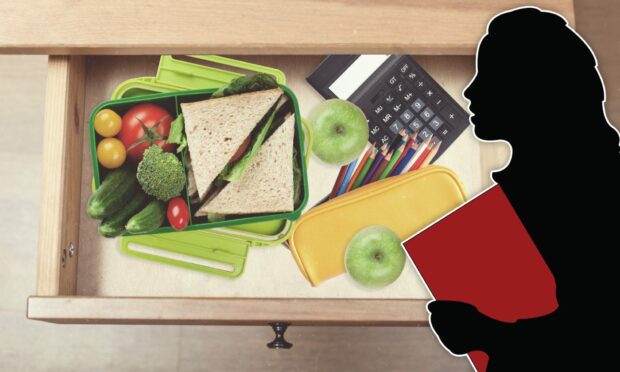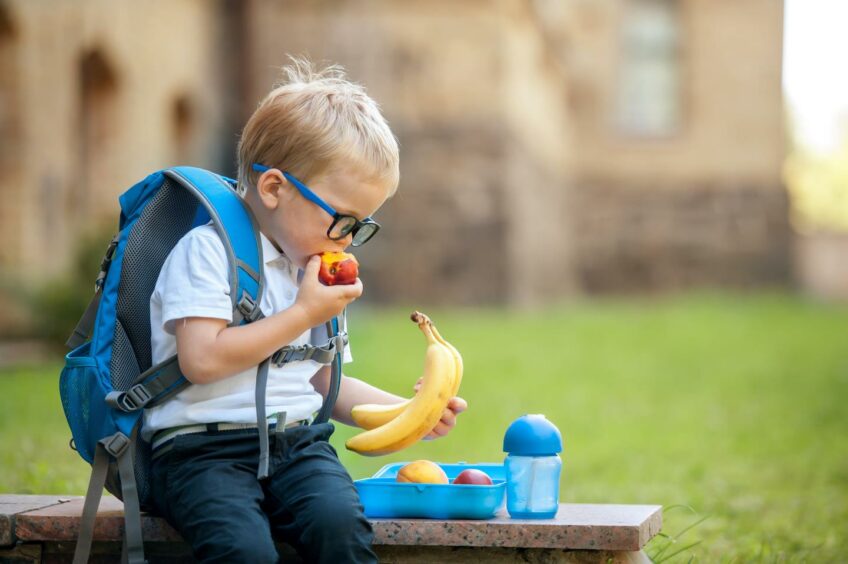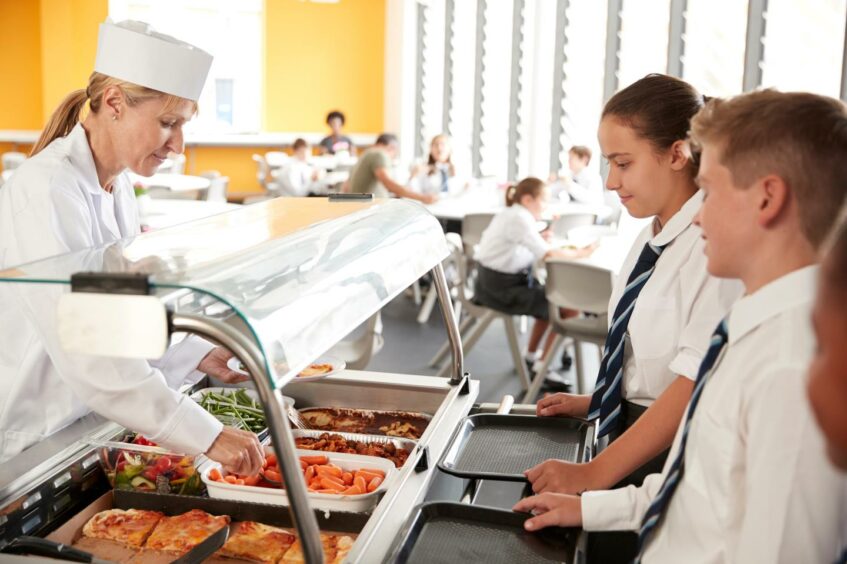Teachers are keeping a stash of healthy snacks in their classroom drawers – or giving pupils items from their own lunch boxes – to stop them going hungry.
More and more youngsters are going to school without breakfast, with a recent survey at Buckie High School showing more than 60% did not eat before heading to class.
Council education bosses have also acknowledged that for many children, their free school lunch is their only hot meal of the day.
And in a heartbreaking revelation, one north-east teacher told us that she and her colleagues keep a stash of “raisins, breakfast bars and long-life” snacks in their drawers to keep the kids going until then.
Although breakfast clubs are available, many were halted as result of Covid and are only just reopening now – leaving many children hungry in the meantime.
The teacher, who wishes to remain anonymous, believes there will be a “legacy” of children who went hungry during Covid.
Schools doing best they can
As part of the Scottish Government’s target to close the poverty-related attainment gap, schools are given support known as Pupil Equity Funding (PEF). This sum of cash – worked out by the number of pupils at each school entitled to a free lunch – can be used however the headteacher thinks will best increase opportunities for learning.
This can range from breakfast clubs, to fruit for break time, or extra help for those with additional support needs.
But the teacher admitted it was often hard to make the money stretch to a full-term – leaving staff with little alternative but to dip into their own pockets.
“From my experience a lot of the PEF is spent on breakfast clubs, or some schools spend it on snacks so that kids have something extra for break time,” she said.
“Other schools buy in fresh fruit and it’s offered to everyone at breaktime so they’re all the same and there’s no stigma.
“Schools are doing the best they can with the budget they have and the extra money they get. At the start of term it’s not a problem, but as the weeks go by I have seen teachers giving things out their own lunches to pupils.
“We also keep some food in our drawers that we can give to the pupils at breaktime if they’ve perhaps come in without breakfast. The problem is though, some kids might not want to tell us because they’re embarrassed.”
‘If a child isn’t well fed, how can they learn?’
She insisted the issue is far more widespread than people would imagine, affecting pockets of communities all over.
The Press and Journal, Evening Express and Original 106 have teamed up for The Big Christmas Appeal, which aims to shine the light on food poverty.
We want to debunk some of the myths and signpost people to the help available, while collecting much-needed funds – and stock – for foodbank charity Cfine, which works across Grampian and the Highlands.
“Food poverty is one of those things we’re becoming increasingly aware of,” the teacher said. “I didn’t go into teaching thinking it would be one of the things I was dealing with.
“Ultimately, if a child isn’t well fed how can they learn? Their basic needs are being met. Anything they do, teaching them to read or write, is affected because they’re distracted and can’t concentrate. They can’t learn if they’re hungry.”
The teacher said it was “heartbreaking” that so many children were potentially being held back by food poverty, and welcomed the Scottish Government’s decision to expand free school meals to P5 from January.
“It’s really good that the free school meals are being extended to the upper stages of schools, when children are more aware of the differences between them and others and are perhaps more easily embarrassed. It ends the stigma because it’s the same for everyone.
‘School is a safe space where they’re guaranteed something to eat’
“Breakfast clubs were stopped by Covid, so there’s now a bit of a catch-up.
“I think that historically, there’s going to be a legacy of children who went hungry during Covid and they’re never going to realise how bad it has been for some families.
“It’s heartbreaking. We’re talking about kids that love to learn and see school as safe space where they’re guaranteed to get something to eat.”
However, the teacher raised concerns that PEF will be even more stretched going forward as a result of the pandemic, with some of the cash likely to be diverted from breakfast clubs to helping children acclimatise to being back at school.
“There are so many other needs that are coming through now,” she said. “There are children with additional support needs that need help to get used to school life after months of home learning away from other distractions. There’s been big changes for them – a lot of changes to their routine.
“It’s hard for teachers who have been in the profession for a long time and it’s hard for those families that aren’t really seeing a way out.”
Hunger impacts attainment
Ron Constable, education trade union EIS local secretary for Aberdeen, said the teacher’s experiences rang true from his own time in the classroom.
He said there were a number of reasons pupils could be considered to be living in poverty, such as their parent or carer being in work but earning a low salary.
“It’s heartbreaking to have a story like that relayed to me.
“I’ve heard through members that they have supplies in the cupboard for children who have arrived without breakfast. It’s something that I know about too – when I was teaching I would have something in the cupboard that I could give children for playtime.
“Our members are acutely aware of the issue and are sympathetic to the children and worry about it a great deal. We know the impact of not having food can have, and it is directly related to attainment. If hungry you’re difficult to concentrate.
“The Scottish Government wouldn’t be making the provision (to expand free lunches) if they didn’t recognise that as well.”


